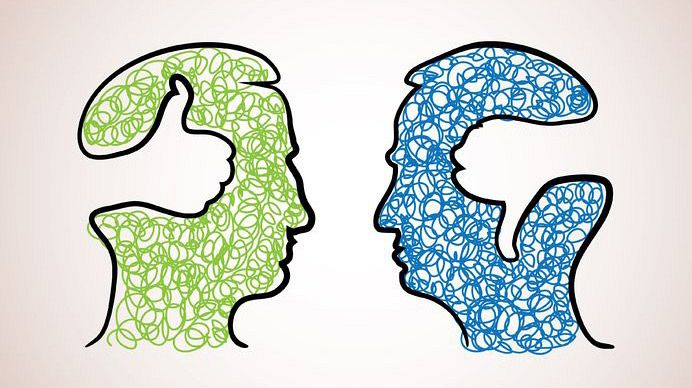Enneagram Type 1: The Idealist

The fundamental motivation/main orientation of Type 1 individuals is "to produce high-quality and excellent work."
Positive Potentials:
- They desire everything they do to be in accordance with rules. They approach everything they do with logical justifications and in line with cause-and-effect relationships. They value principles and discipline in life. They strive to be moral, honest, and principled individuals, and they place great importance on justice. They are aware of their responsibilities and always strive to do what is right. They can be constructive/directive towards their family and spouses.
Potentials Vulnerable to Negativity:
- These individuals, who are detail-oriented, can get lost in details and become rigid and strict in the face of mistakes and deficiencies due to their perfectionist nature. They may get tense and angry about unplanned and unprogrammed things. They may try to impose the truths they believe in with a harsh tone. They can exert pressure on their loved ones/spouses to do what is right and be coercive.
General Characteristic Features:
- Type 1 individuals begin trying to "reach the truth and do what is right" from a young age by examining their surroundings. Their behaviors are oriented towards being exemplary and flawless. They try to emulate the "right, moral" individuals around them. They assess people around them in terms of honesty and gradually trust them accordingly. As much as they strive to be correct and exemplary themselves, they also expect the same from those around them. Rules are very important for Type 1 individuals, and they also try to comply with them. They attach great importance to ensuring that the work they do is correct, excellent, and flawless, and when they see otherwise, they may intervene with a meddlesome attitude towards the people around them.
They observe their surroundings to determine what needs to be done/not done in order to be disciplined, perfect, and complete in their behaviors.
They are highly sensitive to their duties and responsibilities and take great care in fulfilling them. The lack of the same sensitivity in people around them can lead to critical approaches and conflicts.
Type 1 individuals who are clean, meticulous, and orderly attach great importance to these qualities and are quite uncomfortable with disorder and sloppiness. They are individuals who adhere to etiquette and courtesy rules even in their childhood.
Their constant observation of their surroundings allows them to quickly notice deficiencies and mistakes. While their attention to detail enables them to do their work flawlessly, it can also lead to disruption or incompleteness in tasks due to getting lost in details.
While they always strive to be consistent, they live in a highly planned and orderly manner. Although they try to ensure that their behaviors are generally predictable, they can show sudden reactions to behaviors such as irresponsibility and carelessness. In addition, they try to maintain composure in the face of sudden events and strive to exhibit the right behavior.
These individuals with high self-discipline strive to do their work tirelessly and consistently. They may be disdainful towards those who exhibit behaviors such as taking the easy way out or making excuses, and they may expect others to be the same. They are sensitive to justice and strive to protect people's rights. They stand up against injustice done to themselves or others and assert their rights.
Just as they strive to be moral, they avoid behaviors that would contradict societal ethics and truths. They have difficulty understanding people who do not pay attention to these and find it hard to comprehend them.
Type 1 individuals have a method for everything they do and always act according to this method. They usually stick to the known path and may not be very open to different methods.
They Put a Lot of Effort into Maintaining Order and Perfect Functioning

Type 1 individuals are rational and objective individuals rather than emotional. However, they do not reject their emotions and attach great importance to them in their relationships. They can be as warm and sincere in one-on-one relationships as they are logical.
They can get very angry in the face of recurring behaviors such as repeated mistakes, deficiencies, inconsistencies, and injustices. They generally base their anger on logical justifications, which prevents them from being unjust in an argument. They always have justifiable reasons to vindicate themselves in an argument.
They put a lot of effort into maintaining order and perfect functioning. They become disappointed when they do not see the same effort and the results of their efforts. They may feel sad, thinking that their efforts are not understood and that they are struggling in vain.
These individuals, who attach great importance to their responsibilities, may suppress or suppress their own feelings in order to fulfill their responsibilities completely. This attitude can also cause tension in them and create a great burden on them.
Their efforts to improve their lives and surroundings can also affect the people around them. They may direct or even compel those around them to follow their principles and to do what is right in the name of doing what is right and fulfilling their principles.
They Value Principles and Strive to Be Rational
They have an objective way of thinking that aims to reach the truth by systematizing according to the cause-and-effect relationship. They observe and classify everything. They evaluate every action they take in the context of cause and effect.
They aim to reach the ultimate truth by passing conflicting information through the filter of logic and comparing it with the knowledge they possess.
They vigorously defend themselves when they believe they are right.
They value principles and strive to act according to them. They can display a harsh attitude towards people who do not attach as much importance to them as they do and may expect them to give the same importance to these principles.
They value rationality greatly. They can display unforgiving attitudes in the face of mistakes and can be harsh and judgmental in order to achieve what is right.
They are not very open to alternatives. They believe that there is only one truth and that there is a certain way of doing things.
Family Is Very Important to Them
Type 1 individuals who value family greatly see the family as a whole and do not want family members to behave in a way that would disrupt the family order.
When there is a problem within the family, they take the initiative to resolve the situation and expect every family member to adhere to the rules and be responsible.
They Act Very Moderately in Their Social Lives
They place great importance on choosing friends and pay attention to having moral, principled, and decent individuals around them while avoiding people who exhibit irresponsible, morally/principally unacceptable behaviors. While they are measured, controlled, and honest in their social lives, they can be more moderate, relaxed, and cheerful in their closer circles.
They may take on a meddlesome and corrective role with those they feel responsible for, and their high value for justice leads them to be against injustice and strive to act as fairly as possible.
They Are Well-Behaved and Orderly Children
Type 1 individuals begin to do what is right and necessary in their childhood and observe their surroundings. These children, who strive to do what is right, are generally well-behaved and orderly. They often do what needs to be done without needing to be warned.
They quickly notice inconsistencies and mistakes in family members, and if they see family members as inadequate role models, they may turn inward and determine their own truths. They can set their own rules and



